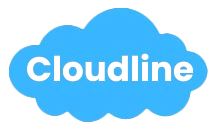- Mulesoft Training
Become a MuleSoft Integration Expert
“Learn to build, manage, and secure APIs and integrations with MuleSoft Anypoint Platform.”
- 4.8 Ratings
Batch starts from 15th December, 2024.

Highlights of the course
- 1 on 1 Student Mentorship
- Practical Training using case studies
- Internship Guarantee Program
- Work On Real Time Projects
- Training by Enterprenuers & Industry Experts
- Assignments & Assessments

-
- Overview of MuleSoft and API-led connectivity.
- Introduction to MuleSoft Anypoint Platform.
- Key features and benefits of MuleSoft for integration.
- Setting up your MuleSoft
-
- Exploring the Anypoint Platform Interface.
- Understanding API specifications and designing APIs.
- Introduction to Anypoint Studio and its components.
- Building your first Mule application.
-
- Fundamentals of API design using RAML (RESTful API Modeling Language).
- Building APIs using API Designer.
- Implementing RESTful APIs with MuleSoft.
- Testing and deploying APIs.
- Introduction to DataWeave: MuleSoft’s data transformation language.
- Writing DataWeave scripts to transform data formats (JSON, XML, CSV).
- Advanced transformations: Flattening and mapping complex data structures.
- Debugging and optimizing DataWeave scripts.
- Connecting to databases and file systems.
- Working with MuleSoft connectors (HTTP, Salesforce, AWS, etc.).
- Implementing message queues and pub/sub models.
- Integrating cloud and on-premise applications.
- Understanding MuleSoft error types and handling strategies.
- Implementing global error handlers.
- Debugging Mule applications in Anypoint Studio.
- Best practices for robust error handling.
- Deploying Mule applications to CloudHub and on-premises.
- Using Anypoint Runtime Manager for application monitoring.
- Scaling and managing APIs and integrations in production.
- Best practices for deploying Mule applications.
- Implementing API security (OAuth 2.0, API Gateway policies).
- Using Anypoint Exchange for API reuse.
- Working with batch processing and streaming.
- Advanced API orchestration and microservices integration.
Frequently Asked Questions
MuleSoft is a platform that gives IT the tools to automate everything.
The requirement for coding is minimal. Coding is mainly needed to perform data transformation.
Yes, the entire digital marketing training is conducted online, allowing flexibility for learners to study at their own pace from anywhere.
Yes, upon successful completion of the course, you will receive a certification from Cloudline Academy.
To enroll, simply visit the Cloudline Academy platform, fill out the application form, and make the payment to start your training.

